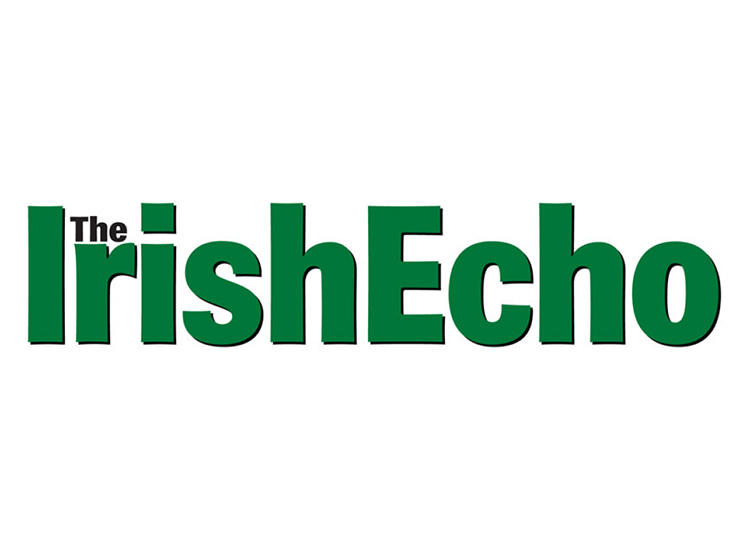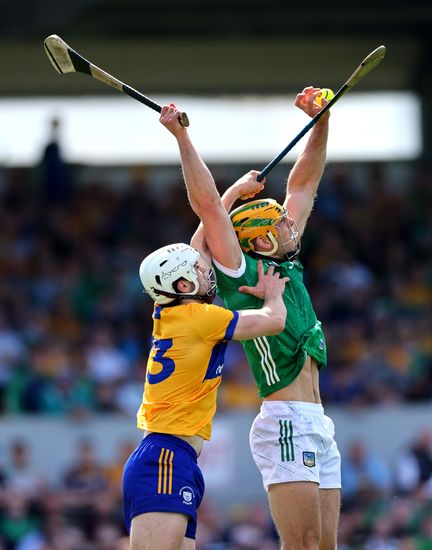Ian Lynch makes interesting connections where you wouldn’t expect them.
Traditional Music / By Daniel Neely
First off, a massive congratulations to the great Joanie Madden on being the traditional music community’s newest National Heritage Fellow! If you’re unaware, the National Heritage Fellowship is this country’s highest honor in the folk and traditional arts and thus an important means for validating our music on the national level. in other words, it’s a very big deal! The first National Heritage Fellowship awarded to a traditional Irish musician in five years, Madden, joins Joe Heaney (1982), Martin Mulvihill (1984), Michael Flatley (1988), Jack Coen (1991), Liz Carroll (1994), Donny Golden (1995), Mick Moloney (1999), Kevin Burke (2002), Joe Derrane (2004), Mike Rafferty (2010), Séamus Connolly (2013), Kevin Doyle (2014), and Billy McComiskey (2016) in the honor. Great stuff, Joanie!
Now, this past week I’ve been catching up with Ian Lynch’s radio show/podcast “Fire Draw Near” and I want to spend this week chatting to you about it. Billed as “a monthly podcast and radio show which investigates Irish traditional music and song in all of its myriad forms,” it’s a fascinating, eclectic show that is both educational and enlightening, and one that readers here will surely want to be aware of because I’m not sure if there’s anything else out there that’s quite like it.
https://youtu.be/SkYerKII25U
Why? Well, each episode is first broadcast on Dublin Digital Radio, an online radio format, and then released in podcast form. But because this isn’t a “traditional” terrestrial broadcast situation, Lynch is not constrained by convention. His is not a sanitized, family-friendly approach. Rather, he is direct, humorous, and sometimes crass, and it lets him bring the world of traditional music and song to great life in an engrossing and strangely cosmopolitan way. It’s as if you’re at the pub with your cool professor, geeking out about music over a few pints.
Regular readers of the column will recognize Lynch’s name from the award-winning band Lankum, in which he sings and plays pipes. They’re darlings of the folk scene with a massive following and even have punk rock credibility. (For example, they were invited to play Shane MacGowan’s 60th birthday party in 2018.) However, I’d imagine that few of their followers are aware that Lynch is a trained researcher. In addition to having pursued a master’s degree in folklore, he’s done things like lecture in UCD’s department of Irish, Celtic Studies and Folklore and work at the Irish Traditional Music Archive. He draws from this skillset in putting together each episode of “Fire Draw Near,” and the joy he projects as he talks about his various research perambulations is palpable.
In general, each episode runs about an hour long, but there are bonus episodes that are a bit shorter. The Christmas episode, where he played well curated music, drank several craft beers, and gave reviews for each one, went on for a very celebratory two. Although tunes are well represented on the show in general – and he includes the occasional poem – Lynch’s focus is on song, which is his primary research interest. Along the way, listeners get treated to bits and bob about politics, life during the pandemic, and the weather – just the sort of stuff you’d expect from any radio show-cum-podcast.
The show’s format changes from episode to episode. Many include deep dives into the history of specific songs. “Johnny I Hardly Knew Ye,” “An Droimeann Donn Dílis,” and “Our Goodman” / “Seven Drunken Nights” are each covered at length, and recently he’s made it a point to explore the contents of the Roud Folk Song Index, covering songs like "The Unfortunate Rake” and “The Gypsy Laddie.” A whopping three full episodes are given to the “Wild Rover,” in which Lynch follows the published research of Brian Peters to explore 17th century English social history and alehouse balladry, and looks at several pre-Dubliners approaches to the song. (There’s even a bonus episode to this trilogy that uses John Mouldon’s work to drill down on the subject of the printed ballad in Ireland.) I find his explorations here really quite fascinating.
Several other episodes are thematically oriented, looking at things like keening and Child ballads. I particular liked “Episode III,” the Valentine’s Day episode, which is a round-up of bawdy songs that range from more serious fare, like Brian O’Rourke’s “Carnations” and Luke Cheever’s “The Cuckoo’s Nest,” to the hilariously low-brow, like Fergus Russell’s “50 Shades of Gray” and Florrie Forde’s “Hold Your Hand Out Naughty Boy.” Episode VIII, which looks at children’s songs, is also great too – suffice to say, the children’s songs of yesteryear might not suit the sensibilities of today’s youth.
In general, the shows are filled with traditional music and Lynch has fabulous taste. In any given episode, you’ll hear from the likes of Séamus Ennis, Willie Clancy,, Elizabeth Crotty, Elizabeth Cronin, Frank Harte, Planxty, Lisa O’Neill, Jimmy Crowley, Len Graham, Tom Lenihan, and others.
But Lynch’s tastes are eclectic and he finds ways to make interesting connections where you wouldn’t expect them. For example, in “Episode XX” (the most recent), I wasn’t prepared to transition out of Christy Moore’s“Black is the Colour,” into Nina Simone & Emil Latimer’s version, and then into Patty Waters’s version of the same. In another episode, which features a conversation with scholar Declan Synnott, he draws parallels between the punk band Cock Sparrer’s song “I Fit Central Heating” and the traditional ballad “The Jolly Tinker.” Indeed, the show’s eclecticism is one of its great strengths. In any given episode, you might find yourself hearing Louis Jordan, Iron Maiden, or Frank Zappa alongside Swan Arcade, the Dubliners, and Shirley Collins.
https://youtu.be/yICANTb2Jyw
“Fire Draw Near” is a great podcast and I recommend it to anyone interested in traditional music and song. Singers in particular will enjoy it for its song-heavy approach that gets at their various histories in interesting ways. Lynch has a terrific delivery (he’s got a “t’ick” Dublin accent), a very cool vibe, and the wherewithal to make the things he’s talking about compelling. If you can’t catch the show on Dublin Digital Radio fret not, it’s available through Soundcloud, Mixcloud, and Spotify. Lynch has also set up a Patreon page for the show, which is a great idea because it’s important to support efforts like this. (Also, Patreon supporters get access to things like extra episodes and bonus tracks, which makes your direct supporting a very fair deal in the end.) To learn more about how to listen or to find the show’s Patreon page, visit campsite.bio/firedrawnear.










